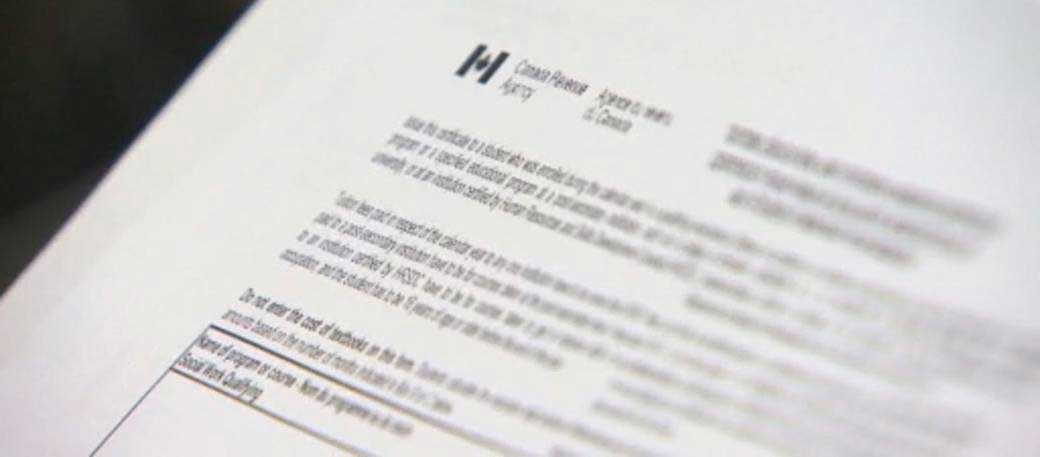
Even in the warped reality of the COVID-19 pandemic, Canadians must file their taxes to receive many of the benefits they’re entitled to. Around two million people could face interruptions to some federal and provincial payments if they wait too long to send in their 2019 tax returns, the Canada Revenue Agency warns.
“The CRA recognizes that in the current COVID pandemic environment it’s imperative for benefits to continue without disruption to Canadians,” says Heather Daniels, director-general of the Benefit Programs Directorate at the CRA.
But some Canadians will face payment delays if the CRA can’t process their 2019 returns before the beginning of September, Daniels notes.
Amid the novel coronavirus pandemic, Ottawa pushed the deadline for most individuals to file taxes from April 30 to June 1 while telling Canadians they had until Sept. 1 to pay any taxes owing without facing interest or penalties. (The tax-filing deadline for self-employed Canadians, however, remained June 15.)
Things to know when filing taxes during coronavirus pandemic
Even those who missed the postponed tax cutoff wouldn’t be immediately penalized, the federal government said. Canadians who’d been receiving the Canada Child Benefit (CCB) and the Goods and Services Tax/Harmonized Sales Tax (GST/HST) credit, for example, would continue to get payments until September 2020 even if they missed their filing deadline.
The CCB is a tax-free monthly benefit for eligible families with children under 18 years of age, while the GST/HST credit is a quarterly payment for low-income Canadians. Both are tax-free and may include payments from provincial and territorial programs.
Canadians, including those with no income, must file taxes in order to access credits such as the GST/HST tax credit and benefits like the Canada Child Benefit as well as the Old Age Security pension and the Guaranteed Income Supplement.
For late-filers, the CRA has been using 2018 tax-year information to calculate the CCB and GST/HST credit amounts for July, August and September, according to Daniels. But those payments could stop in October if the CRA doesn’t receive your 2019 return by early September, the CRA warns.
As of July 1, the CRA had yet to assess the 2019 tax files of some two million CCB and GST/HST credit recipients, Daniels tells Global News. That’s approximately 13 per cent of the 15 million Canadians who were eligible for those benefits based on their 2018 returns, she adds.
Daniels urges Canadians who haven’t done so yet to file their 2019 taxes electronically and sign up for direct deposit to ensure faster processing of tax refunds and avoid any interruption in benefit payments.
“I do worry that if people wait until the end of August to file — and they file on paper — there may be an issue,” she says.
In mid-May, the CRA warned of the probability of “significant delays” for paper filers due to “reduced staff onsite to support physical distancing.” Currently, however, CRA tax centres are working “at full capacity” processing paper returns, according to Daniels.
Source: Erica Alini, Global News July 21st, 2020.
Newsletters
No Results Found
The page you requested could not be found. Try refining your search, or use the navigation above to locate the post.
Events & Sponsorship
No Results Found
The page you requested could not be found. Try refining your search, or use the navigation above to locate the post.
Articles & Publications
CRA Warning: Pay Your Taxes on the CERB!
The Canada Revenue Agency (CRA) might have helped you through the lockdown if you lost your job due to COVID-19. The federal government initially announced the Canada Emergency Response Benefit (CERB) that would see qualifying Canadians receive $2,000 per month over...
Keeping payroll on course during crisis
Staffing changes and government relief measures add to payroll management challenges during the pandemic Of the many business challenges that have emerged from the disruption of the COVID-19 crisis, the human resources implications have been some of the most difficult...
CEWS Update – Federal Government redesigns CEWS for Period 5 and onwards
On July 17, 2020, the Government of Canada released details, as well as draft legislation, in respect of a redesigned Canada Emergency Wage Subsidy (CEWS) program effective from July 5, 2020. Pursuant to the backgrounder, the estimated total fiscal cost in 2020-21 for...
Canada Emergency Wage Subsidy (CEWS)
The Canada Emergency Wage Subsidy (CEWS) supports employers that are hardest hit by the pandemic, and protect the jobs Canadians depend on. The subsidy generally covers 75% of an employee's wages – up to $847 per week - for employers of all sizes and across all...
Canada Emergency Response Benefit
What is the Canada Emergency Response Benefit If you stopped working because of COVID-19, the Canada Emergency Response Benefit (CERB) may provide you with temporary income support. The CERB provides $500 a week for up to 16 weeks. How to apply We will start accepting...